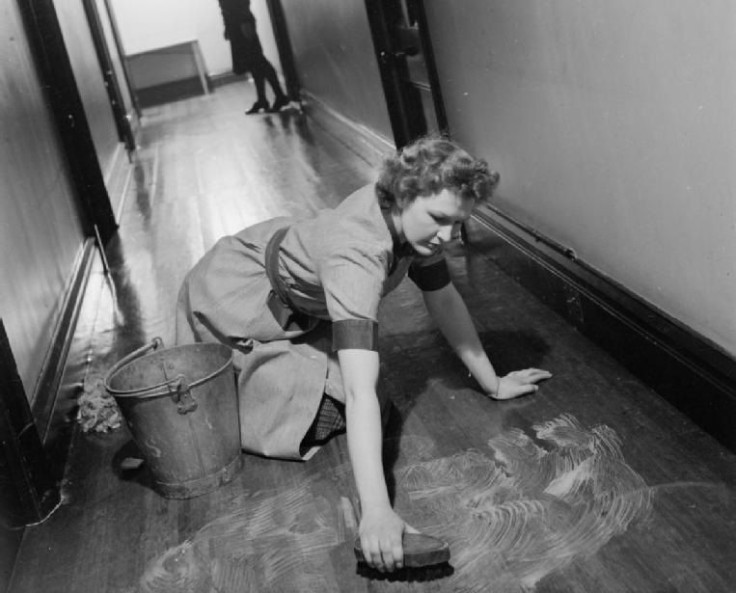Household Chores May Not Help You Stay Thin: People Who Consider Housework Exercise Are The Most Overweight, Study Says

Vacuuming, washing dishes, cooking – these are active tasks, even considered exercise by some. But new research published in a BMC Public Health study says that housework may not be anything close to a proper workout – and that people who do the most household chores are actually the most overweight.
The study reviewed over 4,500 adults and asked them to list activities they did that they considered to be moderate to vigorous physical activity. Those who listed housework most in this category were more likely to be overweight, the study says, pointing to the fact that perhaps people may be mistaking housework as more calorie-burning than it really is. Most of these people were women and the elderly.
"At an individual level there may be a tendency to overestimate the level of 'good behaviour' we're doing and this is reflected when people use food diaries, pedometers or apps to measure more objectively what they have achieved,” Kevin Fenton, the director of health and wellbeing at Public Health England, told The Guardian. “This study may reflect this.”
According to the UK Department of Health, people should maintain moderate to vigorous physical activity for at least 150 minutes, or about 2.5 hours a week. The study found that domestic physical activity accounted for 35.7 percent of the self-reported moderate to vigorous physical activity (MVPA). The National Health Service (NHS), however, does not consider housework as counting toward those 150 minutes, according to the BBC.
"Domestic physical activity accounts for a significant proportion of self-reported daily moderate to vigorous physical activity particularly among females and older adults,” the authors of the study wrote. "However such activity is negatively associated with leanness, suggesting that such activity may not be sufficient to provide all of the benefits normally associated with meeting the physical activity guidelines."
Various articles have been written about the potential calorie-burning and weight loss benefits of household chores, some even noting that cleaning the bathroom and vacuuming burned more calories than using the Wii Fit. And there are certainly benefits to staying active, even if it’s not strenuous enough to be considered a workout. CNN reported earlier this year on a study that pointed to more technology left people with less housework to do, which may be linked to the obesity epidemic: “Our ‘world’ no longer necessitates moderate or intense physical activity," Dr. Edward Archer, a research fellow with the Arnold School of Public Health at the University of South Carolina in Columbia, told CNN. "Therefore, women (and men) need to allocate more time to deliberate exercise to overcome the decrement in daily activity.”
Fenton believes that doing household chores, though linked to unhealthy weight in this particular study, should not be crossed off the list as ways to stay at least moderately active. He cites its potential benefits to mental health, too. "From an individual perspective, physical activities such as housework, doing the shopping and walking to collect children from school or to post a letter, can have positive impacts on physical and mental wellbeing,” he told The Guardian. "People who are even more active will often see greater benefits and it is important to recognise that healthy weight is just one of the potential outcomes of physical activity."



























